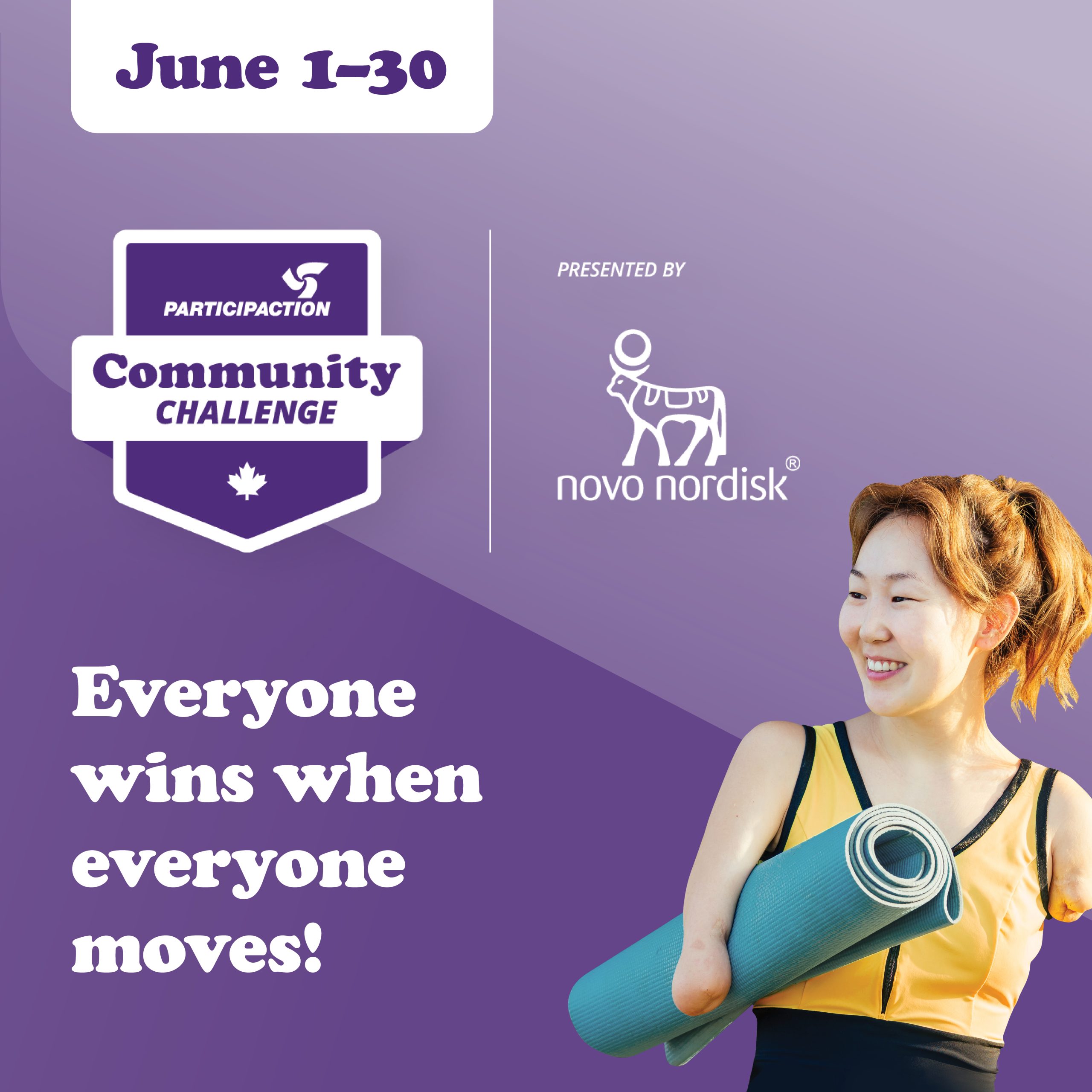As part of the 2024 ParticipACTION Community Challenge presented by Novo Nordisk, ParticipACTION awarded grants to organizations across Canada to help remove barriers and boost physical activity and sport participation for equity-denied groups. Want to know how some of these grant recipients are using the funds to get their communities active during this year’s Community Challenge? We spoke with members of three of these organizations – the Ottawa Rowing Club (ORC), Escrime Mont-Royal (EMR) and the Muslim Community Foundation of Calgary (MCFC) – to learn about the exciting initiatives they’re running in June.
ORC is an inclusive, volunteer-run organization that inspires excellence and builds community through the sport of rowing. It provides athletic opportunities through competitive and recreational rowing, leading to personal success, increased fitness, and community-building in the Ottawa region.
Based in Montreal, EMR is a fencing club with members between the ages of eight and 80+ years. The club teaches and practices modern fencing using all three sport weapons (epee, foil and sabre) in both English and French. It also teaches traditional historical 18th century fencing as a self-defense martial art.
MCFC helps fulfill the religious, educational and spiritual needs of the Muslim community in Calgary and surrounding areas. The foundation organizes activities to promote tolerance, understanding and appreciation of Islamic values, and contributes to children and youth community programs.
Tell us about the program or event that the Community Challenge grant is supporting.
ORC: “The grant is supporting our Special Olympics Greater Ottawa Rowing Program – the first of its kind in Canada. Running twice a week from May to August, this inclusive program is for individuals with intellectual disabilities. Thanks to the Community Challenge grant, we’ve been able to expand our program and ensure its longevity, ultimately leading to a more inclusive community, both in Ottawa and the rowing community worldwide.”
EMR: “The funds are supporting two accessible fencing programs: a modified program designed for people with limited mobility and another program for people with visual impairments. We developed our modified fencing program after talking to a few Paralympians from Quebec who explained that Paralympic wheelchair fencing has major barriers to entry and limited access to affordable programs. Later conversations with the Blind Sports Association of Metropolitan Montreal (ASAMM) revealed a strong interest among its members in a version of fencing for people with visual impairments, so we took aspects of our other programs and various forms of fencing practiced in the U.S. to create our program for people with visual impairments.”
MCFC: “The grant is supporting a youth dodgeball tournament at the Akram Jomaa Islamic Centre in Calgary. This inclusive event aims to break barriers to physical activity and promote equity by providing a fun and accessible platform for participation. By leveraging the spirit of sport, we aim to empower youth from diverse backgrounds, including Black, racialized and low-income populations, as well as newcomers to Canada, to create a vibrant and inclusive space where everyone can thrive physically, emotionally and socially.”
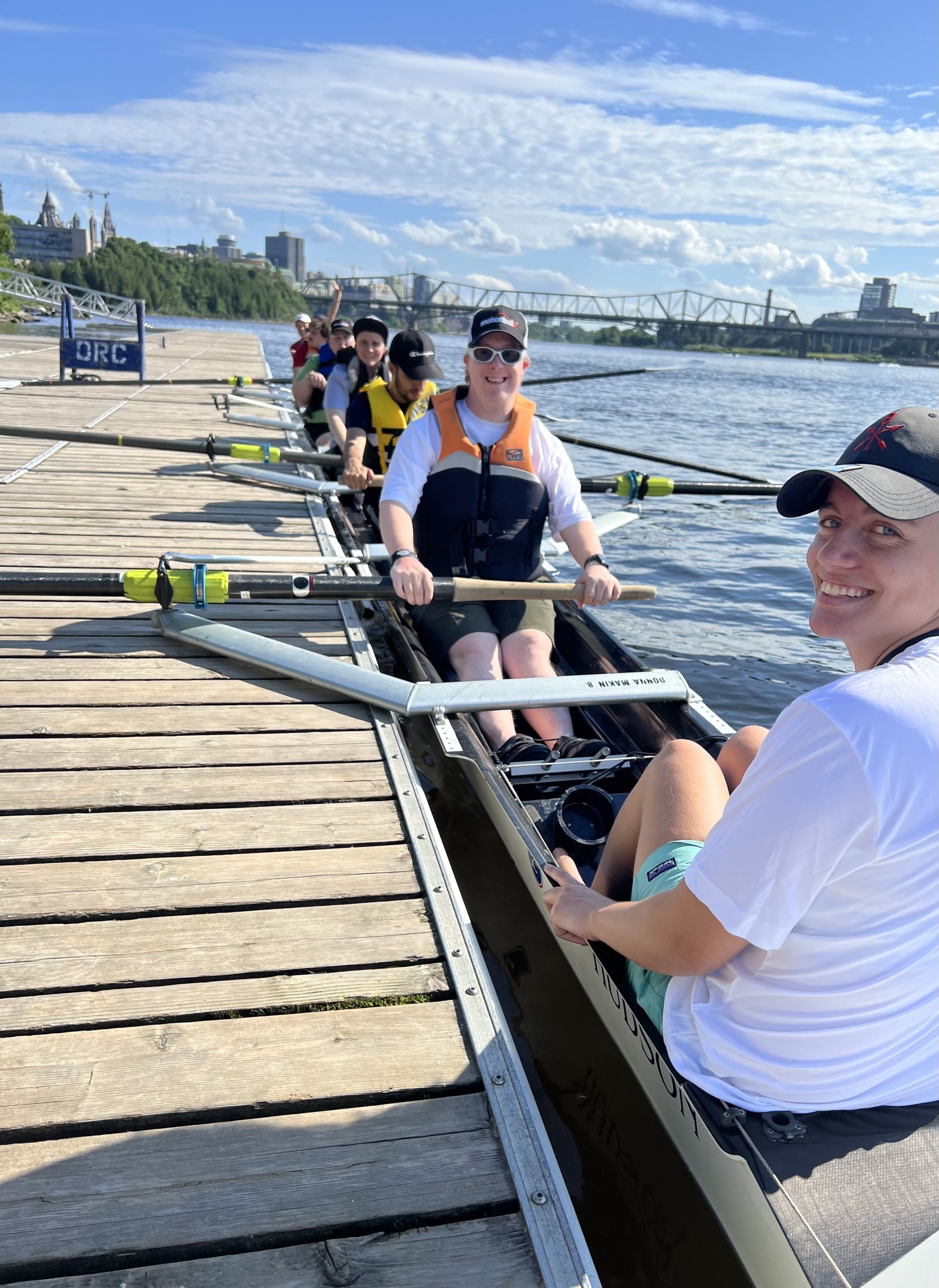
How does this program or event align with your organization’s mission and values?
ORC: “Our mission at the ORC is to introduce as many people as possible from all walks of life to the sport of rowing and the beauty and tranquility of the Ottawa River. Our Special Olympics Rowing Program aligns with our mission by increasing the representation of persons with disabilities in the rowing community.”
EMR: “As a not-for-profit, EMR’s primary goals are to promote fencing to the community, improve the quality of the sport and make it accessible to everyone. Our accessible fencing programs allow us to share our passion for fencing with new people and make them part of the fencing community.”
MCFC: “At MCFC, we believe that sports and recreational activities serve as a common language that unites individuals and fosters strong social connections and community ties.”
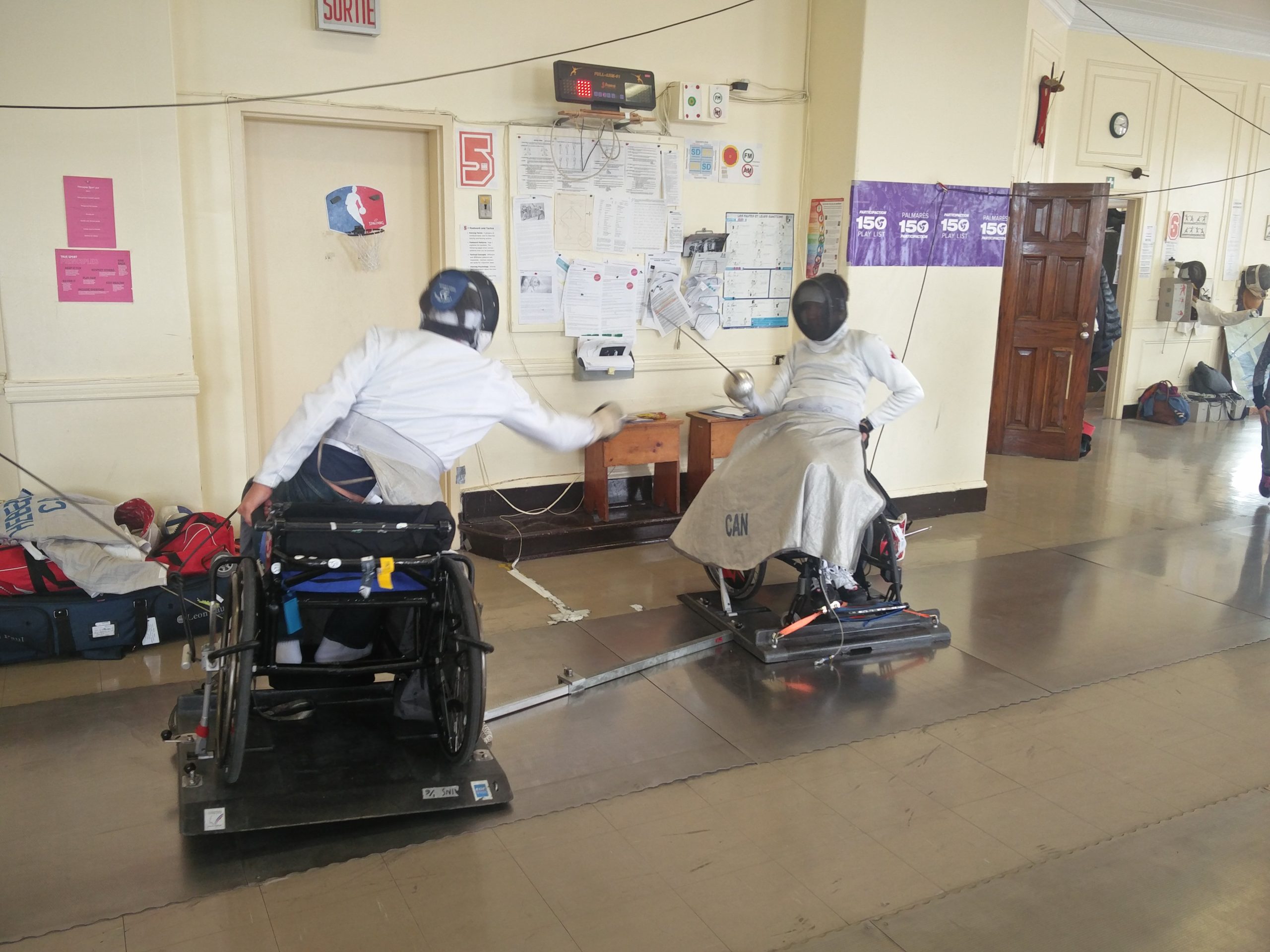
How will this program or event benefit equity-denied groups?
ORC: “Our Special Olympics Rowing Program helps address the lack of sport opportunities available for individuals with intellectual disabilities and the underrepresentation of athletes with disabilities in rowing. The selected coaches, equipment used and program design aim to collectively create a meaningful experience for individuals with intellectual disabilities. This population also disproportionately experiences low income due to barriers within society. Thanks in large part to the Community Challenge grant, our program brings the sport of rowing to people with intellectual disabilities at minimal cost.
Besides the technical aspects of rowing, program participants learn and develop skills that are transferable to other facets of life. Rowing in a narrow boat on the Ottawa River requires tons of patience and trust in your teammates. Effective communication is paramount to a successful row, and the ability to work together to propel a boat through the water requires many hours of grit, concentration and respect for yourself and your teammates.”
EMR: “Our accessible fencing programs allow those who may not be able to or are reluctant to participate in traditional sports, especially considering the steep barriers to entry to wheelchair fencing and the lack of fencing programs for people with visual impairments. Since our programs are adapted to the needs of these groups, they’ll be able to become part of the wider fencing community, no matter what their background or situation.
Fencing is a unique sport that attracts a variety of people and can offer many participants the opportunity to enjoy and excel at it. It also requires thinking quickly and accurately, making it a sport for both the body and mind. It can help keep your mind sharp, improve your hand-eye coordination and allow you to develop faster reaction times.”
MCFC: “The youth dodgeball tournament will provide equity-denied groups with access to a sport that they may not have otherwise had the opportunity to participate in due to financial constraints. It promotes equity and inclusion by offering a space where all individuals, regardless of their socioeconomic status, can come together, engage in physical activity and build social connections.”
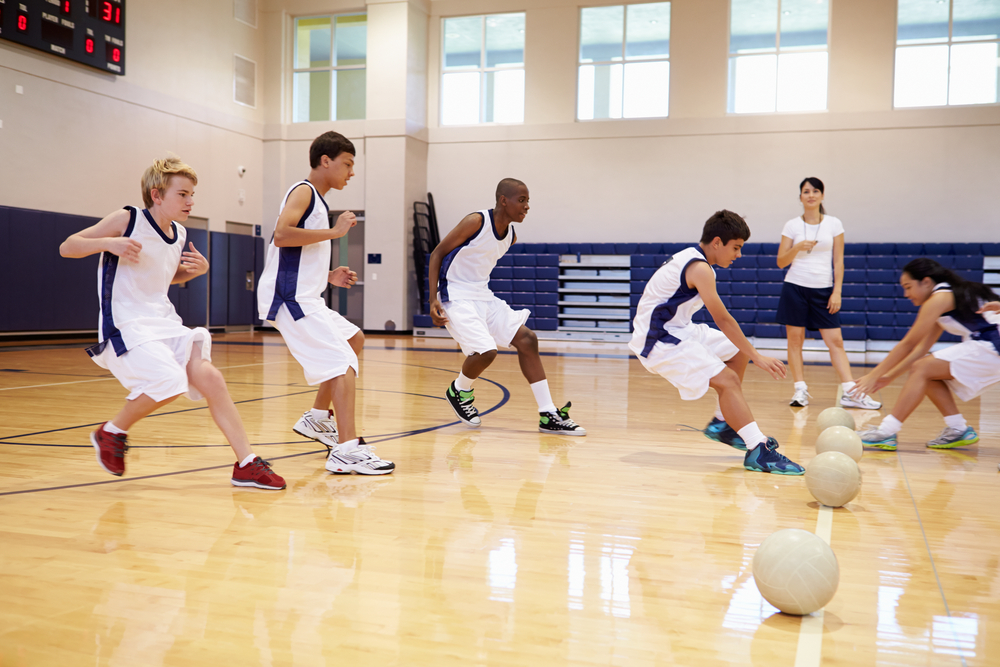
What does the future hold for this program or event? Do you plan to run it or something similar again?
ORC: “We hope the Special Olympics Rowing Program will continue to grow because we’ve seen the positive impact it’s had on the rowing community and individuals with disabilities. We also hope it will inspire other rowing clubs to start their own programs. We have no plans to end our program any time soon, as we’re set on entering the racing scene and making waves at regattas!”
EMR: “We hope to be able to continue offering our accessible fencing programs year-round. If there is enough interest in these programs this month, we hope to offer more frequent training for the participants.”
MCFC: “We hope we can host a future dodgeball tournament for participants of all ages and diverse backgrounds, fostering inclusivity and unity within our community.”
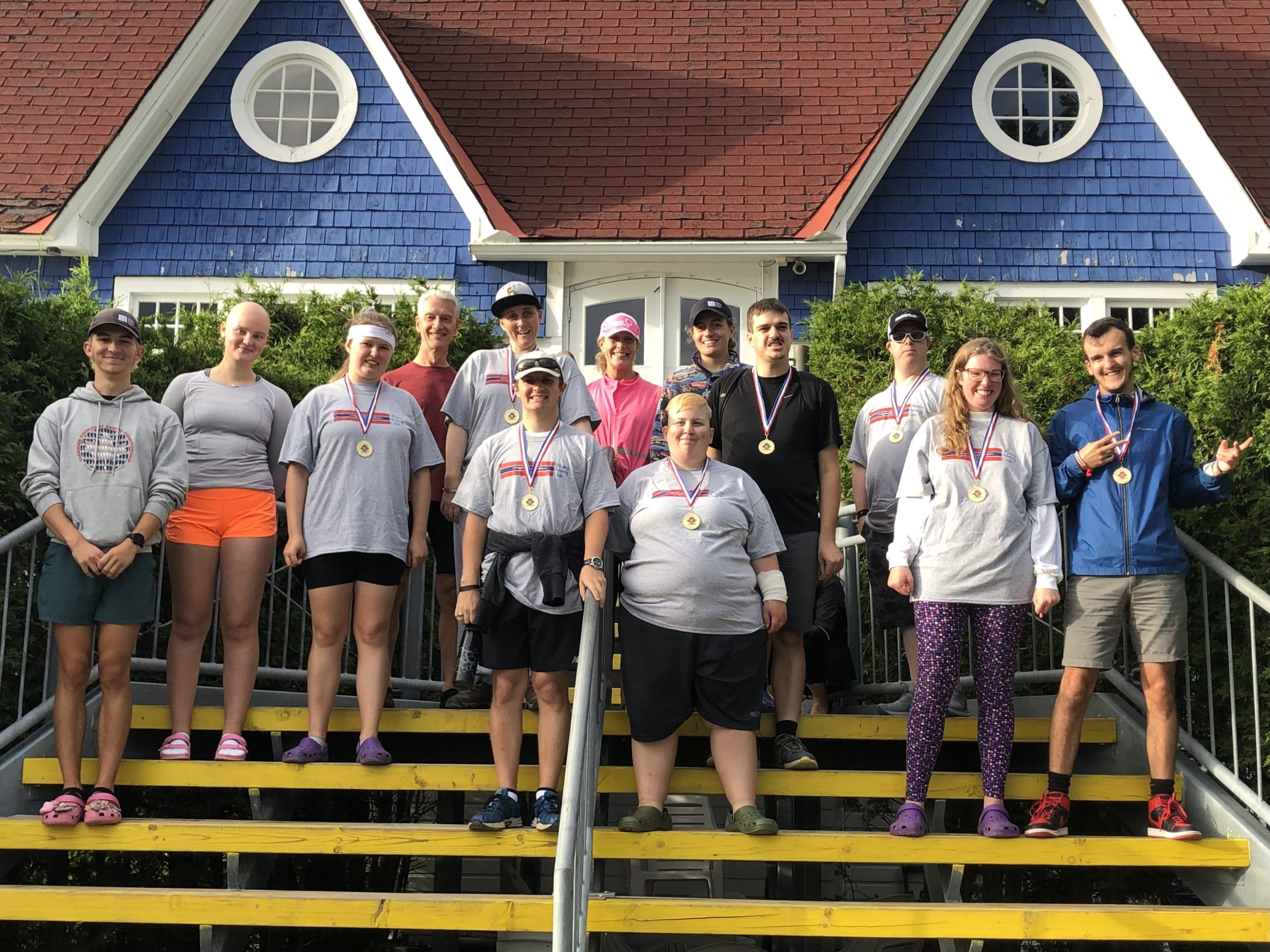
Commit to being active in June to help your community win up to $100,000!
Looking for a fun way to get moving, connect with others and help your community get crowned Canada’s Most Active? The ParticipACTION Community Challenge presented by Novo Nordisk is on until June 30! Sign up on the Community Challenge webpage and commit to being active throughout the month to help your community compete for the title of Canada’s Most Active and win $100,000 for local sport and physical activity initiatives. Plus, the most active community in each remaining province and territory will receive $7,500 to $15,000. Join today!
